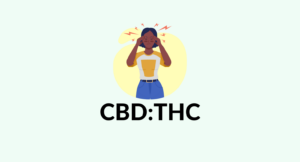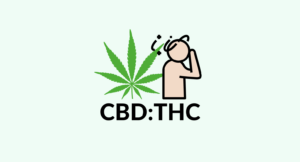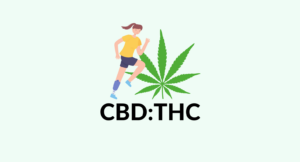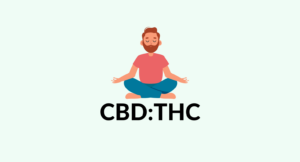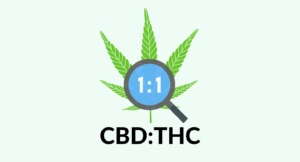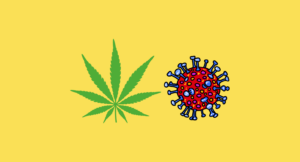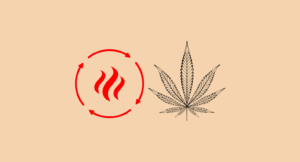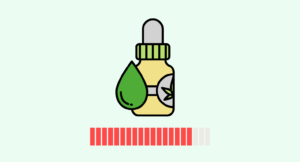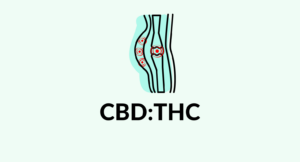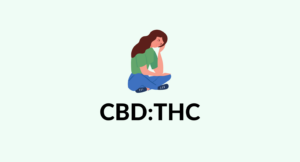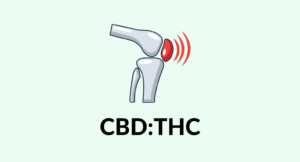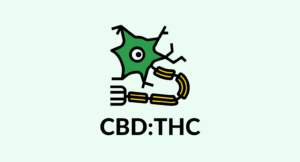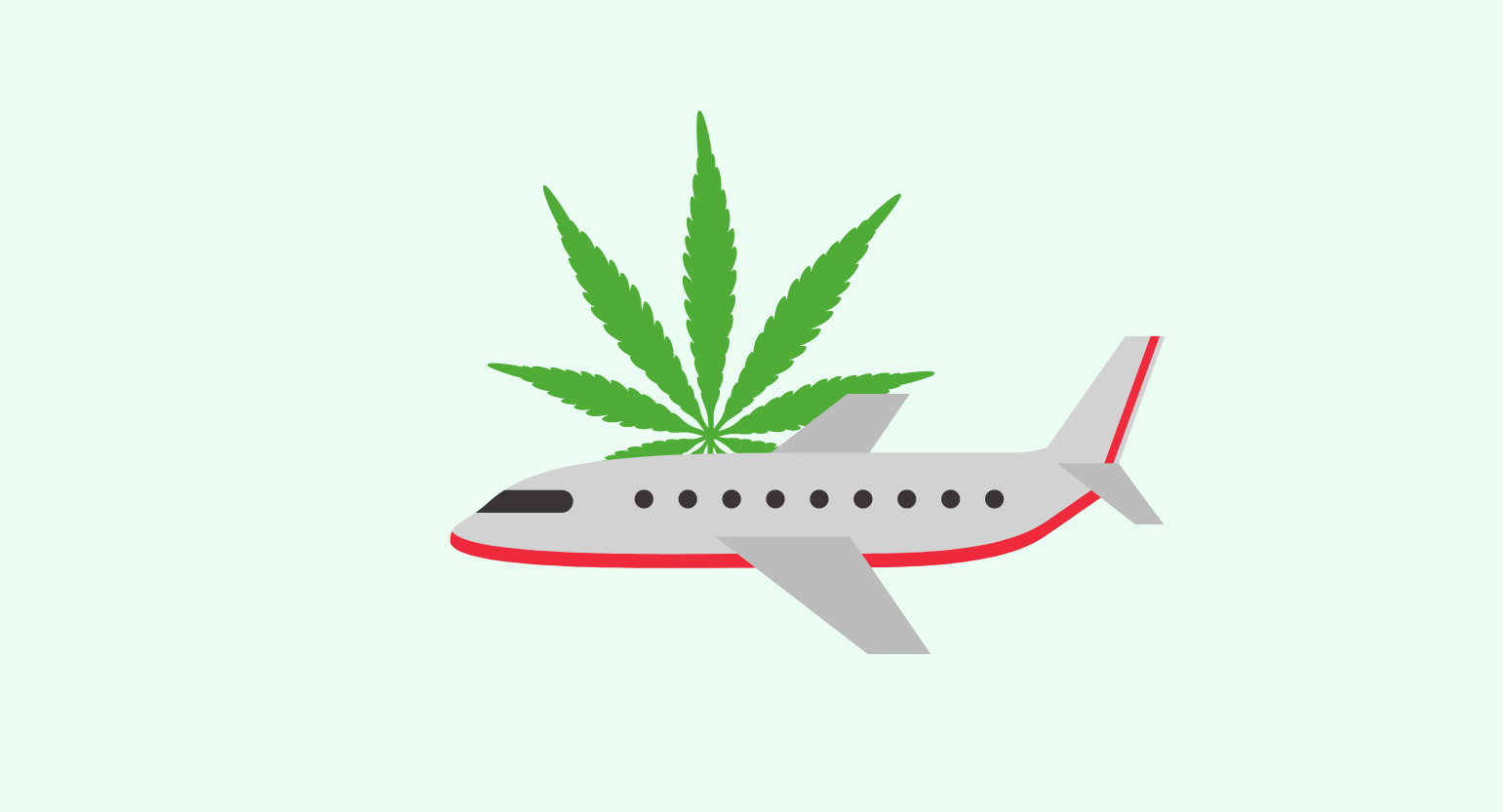
Evidence based
Traveling With CBD — Here’s What You Need To Know
Thinking of traveling with CBD? The TSA allows you to fly with CBD domestically, but international travel is another story.
Read this before packing your bags.
In this article, we’re going to help you travel smarter with CBD.
Cannabidiol (CBD) has quickly become a favorite natural health supplement — and it’s everywhere. You can find it in capsules, oils, gummies, chocolate, and even lotions. As a cannabis-derived compound, flying with CBD or crossing international borders can pose a huge risk. If you make the wrong move, you can find yourself in legal trouble.
CBD has been recognized for its myriad of health benefits and hemp-derived CBD is federally legal throughout the United States. However, not all states are friendly towards cannabis-based products.
Before you pack your toiletry bag with your favorite supplements, be sure to conduct your research to avoid suspected violations of law.
In this guide, you’ll find helpful advice for traveling with CBD in the US and internationally.
The Benefits Of CBD Oil For Travelers
CBD stands for cannabidiol, and it belongs to a class of natural compounds called cannabinoids derived from hemp and marijuana plants. Although CBD comes from the cannabis plant, unlike its psychoactive cousin, THC (tetrahydrocannabinol), CBD does not illicit intoxicating effects.
Many people turn to CBD as a natural supplement to optimize their health, alleviate pain, manage anxiety, and support sleep.
Given all the potential health benefits of CBD, it makes sense to pack CBD in your toiletry bag alongside melatonin (to combat jet lag), pain killers, other health supplements, and medication, as many people consider CBD a staple in their health and wellness regimen.
Here’s why you might want to bring CBD with you when you travel.
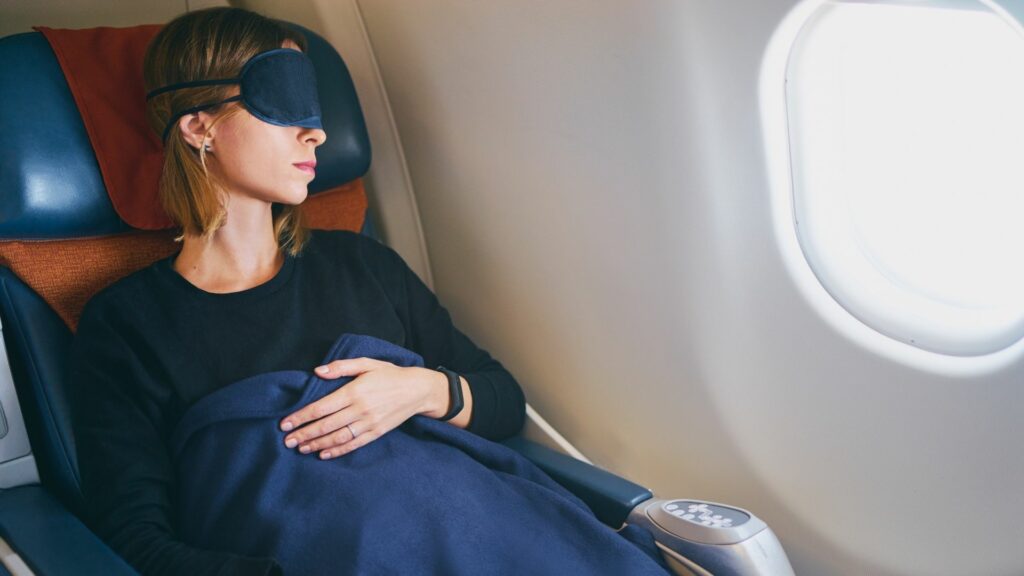
1. Sleep Support
Traveling across time zones can wreak havoc on your sleep cycle.
One of the many reasons people turn to CBD is to help regulate their sleep cycle. In high doses, CBD has been observed to have sedative-like effects, helping you to gently fall asleep and stay asleep throughout the night without waking up feeling drowsy the next morning.
2. Manage Stress & Anxiety
Not everyone travels well. Traveling can bring about a lot of stress and anxiety, which is compounded when you have a fear of flying or are on a hectic schedule.
CBD can be an excellent supplement for managing anxiety symptoms when combined with other stress-reduction approaches, like regular exercise, a balanced diet, working with a counselor, and prioritizing sleep.
3. Healthy Inflammatory Response
CBD is most notably famous for its’ anti-inflammatory effects, which can help to combat pain, tissue damage, and mood disorders.
There are dozens of physiological processes that regulate the body’s inflammatory response, and CBD is an effective anti-inflammatory because it works through multiple pathways rather than addressing only one.
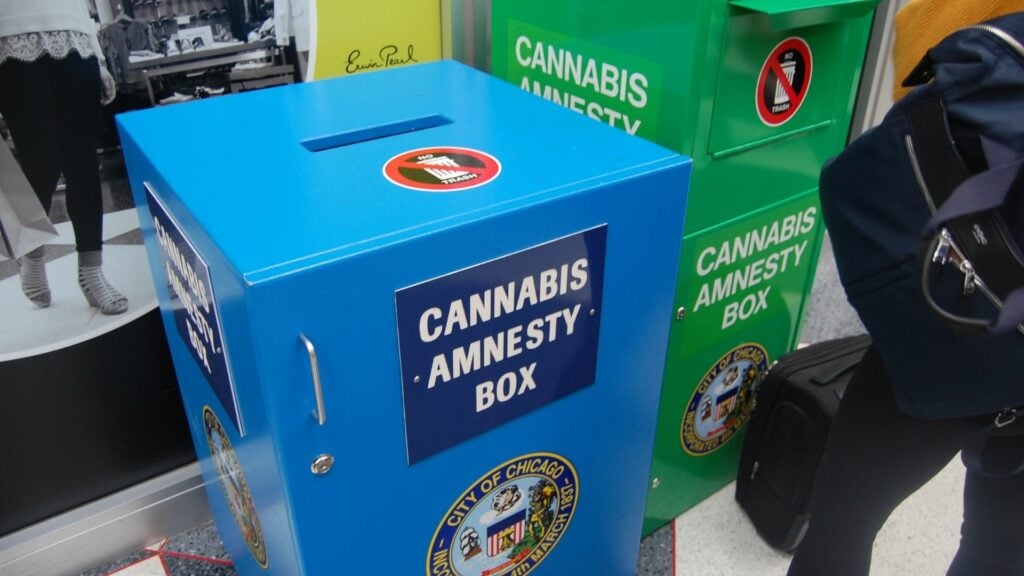
The Legality Of CBD
The cannabis plant has had a very long and complicated history in the United States, but as more research emerges about the potential health benefits of cannabinoids, and social acceptance of marijuana becomes more popular, laws eventually adapt.
The 2018 US Farm Bill was a game-changing moment for the CBD industry.
The bill states that if CBD is derived from the hemp plant with less than 0.3 percent THC, you can produce it, harvest it, and sell CBD extract.
The Differences Between Hemp & Marijuana
While hemp and marijuana are both Cannabis sativa plants, their phytochemical makeup and uses are different, and therefore, they exist on different sides of the federal law.
Marijuana and its derivatives remain illegal under federal law.
In the United States, marijuana is any cannabis plant with more than 0.3 percent THC by weight. Other countries may have different THC thresholds for classifying marijuana. For example, Mexico deems any cannabis plant over 0.1% THC to be marijuana.
Delta 9 THC is the primary psychoactive compound in cannabis and it’s listed as a Schedule 1 drug in the United States because of its potential for abuse and has no medical benefit.
Current research demonstrates that this isn’t exactly true, but laws and societal stigmas are slow to reflect this, and marijuana remains a restricted substance. However, states including California, Oregon, Illinois, New York, and Maine have fully legalized marijuana for recreational and medicinal use.
Hemp contains a high CBD profile with less than 0.3 percent THC. At these THC levels, it’s highly unlikely to illicit intoxicating effects, which makes it ideal for supplement and medicinal uses.
Before buying any CBD product, look to make sure that it’s made from hemp crops or you could be violating the law, according to state or federal authorities (depending on your location).
What About Delta 8 THC?
Delta 8 THC is an analog of delta 9. It can be made from hemp in order to comply with federal laws, yet provides much of the same psychoactivity as delta 9 THC.
Delta 8 THC laws are notoriously unclear — and they change all the time. Currently, about 32 states consider delta 8 THC legal, but not explicitly.
Delta 8 THC is legal by proxy because the language on most state and federal cannabis regulations specifically mention delta 9 THC — not delta 8. As long as delta 8 is made from hemp and contains below the federal limit of delta 9 THC — it’s considered (loosely) legal.
Because of the complexity of these laws, and challenges differentiating between delta 9 and delta 8 THC without high-tech lab equipment (something the TSA isn’t going to have kicking around), you’re better off leaving the delta 8 at home — even if the state you’re travelling to permits it.
Can I Bring CBD Oil On A Plane?
Tread carefully in these waters, the laws regarding traveling with CBD still aren’t clear — and if you aren’t well versed in the laws surrounding cannabis in each state, you could end up in hot water.
The TSA recently changed its stance for traveling with CBD across states.
The TSA allows medical marijuana (with a license) and hemp-derived CBD (manufactured in accordance with the Farm Bill) to travel within the United States. The CBD product must be FDA approved, containing less than 0.3% THC.
The tricky thing is not all TSA officers understand the differences between hemp-derived CBD and marijuana products.
This can lead to confiscation of products and delays in security. There’s not much you can do to get around this, but to ensure your CBD products are properly labeled and that you have the necessary paperwork with you if you’re flying with prescribed cannabis.
It might also be a good idea to keep the statement about the TSA’s stance on flying with CBD bookmarked on your phone browser beforehand.
When it comes to flying internationally, there’s a different story and we’ll jump into that shortly.
What States Is CBD Oil Legal In?
Although the federal government has legalized hemp-based CBD products, not all states have a friendly view on CBD products — and they may have local restrictions on CBD.
For example, Nebraska and Idaho restrict any CBD product unless it’s 100% THC-free. This means that broad-spectrum or CBD isolate products are your only options here.
If you plan on bringing CBD on your travel across state borders that you check with the local laws before packing your bags.
What Happens If I Get Caught With CBD Oil?
If you’re crossing borders and get caught with CBD oil or any cannabis product, the most hopeful outcome is confiscation.
However, since you’re breaking the law, the border has the right to deny entry and turn you around — or you could face hefty fines and even jail time (depending on the country and how much CBD product you have on hand).
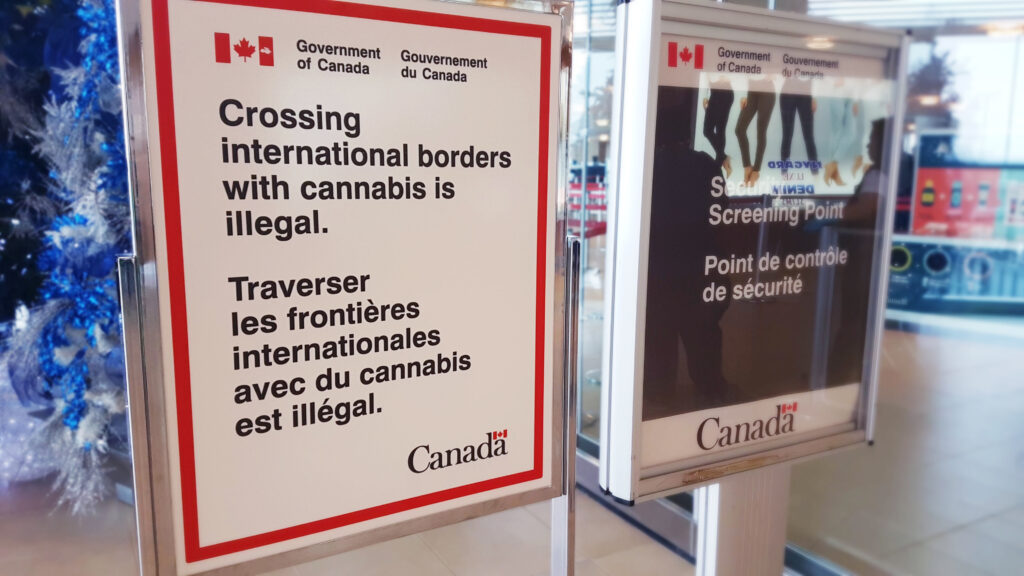
Can I Travel With CBD Internationally?
You should not travel with CBD if you’re flying internationally, even if CBD is legal in your own country and the country you land in. Some countries do not differentiate between marijuana and hemp — so your CBD oil could be illegal in the country you’re visiting.
Traveling in Canada
Marijuana is legal in Canada for recreational use, and many people enjoy using CBD products derived from hemp legally. Although CBD is legal on both sides of the border, it’s illegal to cross the border with any cannabis product.
According to the Canadian government website, you must declare your cannabis products when entering the country, even if you’re authorized to carry them for medicinal purposes. Failing to do so can result in getting turned around at the border, fines, or entry bans.
Traveling in Mexico
In Mexico, CBD derived from hemp is legal to purchase. However, the cannabis plant is considered hemp as long as it contains no more than 0.3% THC, which means your full-spectrum CBD product could be prohibited.
While our Southern neighbor is moving towards a friendlier legal stance towards the cannabis plant, it’s still not recommended to cross the border whether driving or flying with any cannabis-infused products, including legal CBD oil.
Traveling in Europe
According to the European Union, CBD derived from hemp with no more than 0.2% THC is legal. However, each country may have its own regulations surrounding this subject. The biggest issue around this gray area is that there’s no clear distinction of how CBD should be classified (food product, health supplement, or a drug).
Either way, you should not travel to Europe with any cannabis-infused products, including CBD, when traveling to Europe. Many European countries have legalized CBD, so you can shop for it at the local shops.

Factors To Consider When Buying CBD & Traveling
For the most part, you’re safe to travel within the United States with your CBD product as long as it’s made from legal hemp crops. But we do not advise traveling outside the country with any cannabis-derived products, even if it’s legal on both sides of the border, as it can land you in some heat.
Here are some factors to consider when buying CBD and traveling within the United States.
Extract Type
Aside from ensuring you’re only purchasing hemp-derived CBD for legal reasons, it’s important that you consider the extract type if you’re using it to combat some of the physical and emotional exhaustion associated with travel.
CBD products are available in three main extract types:
- Full-spectrum
- CBD isolate/distillate
- Broad-spectrum (THC-free)
Full-spectrum cannabidiol (CBD) oil remains the most recommended type for its therapeutic properties. It contains a range of cannabinoids and terpenes that compound and balance the health benefits of CBD, and it may legally contain up to 0.3% THC.
Full-spectrum CBD oil and other products will do a better job at supporting some sleep, anxiety, and inflammation over its CBD isolate extracts.
However, the trace amounts of THC in these products could cause you some grief at the border. Try going with one of the other 100% THC-free options if you’re planning for a trip.
For 100% THC-free products, we recommend going with broad-spectrum as it still contains a diverse cannabinoid range.
Product Type
When traveling with CBD domestically on a plane, you still need to consider the TSA regulations for flying with liquids.
CBD oils are perhaps the most popular CBD products and offer a lot of versatility. According to the TSA, you are permitted to bring a quart-sized bag of liquids, creams, gels, and aerosols on your carry-on bag. Each container must have no more than 0.3 ounces (100 mL).
CBD capsules or gummies may be the more travel-friendly option as they don’t pose the risk of leaking and you can carry a larger supply of CBD for longer trips.
Third-Party Lab Results
Checking with a CBD product’s independent lab testing should be an important step in your shopping decision.
The CBD industry is still fairly new, and there’s a lot of product that make it onto the market that doesn’t comply with federal rules or doesn’t contain the listed amount of active ingredients — they’re essentially selling snake oil.
Third-party lab testing is a way for CBD brands to maintain customer transparency and ensure the safety of their products. You can look to make sure the CBD oil does not contain more than 0.3% THC, and that it has the listed CBD content. The lab results should also tell you that it’s free from potential contaminants (solvents, pesticides, mold, heavy metal).
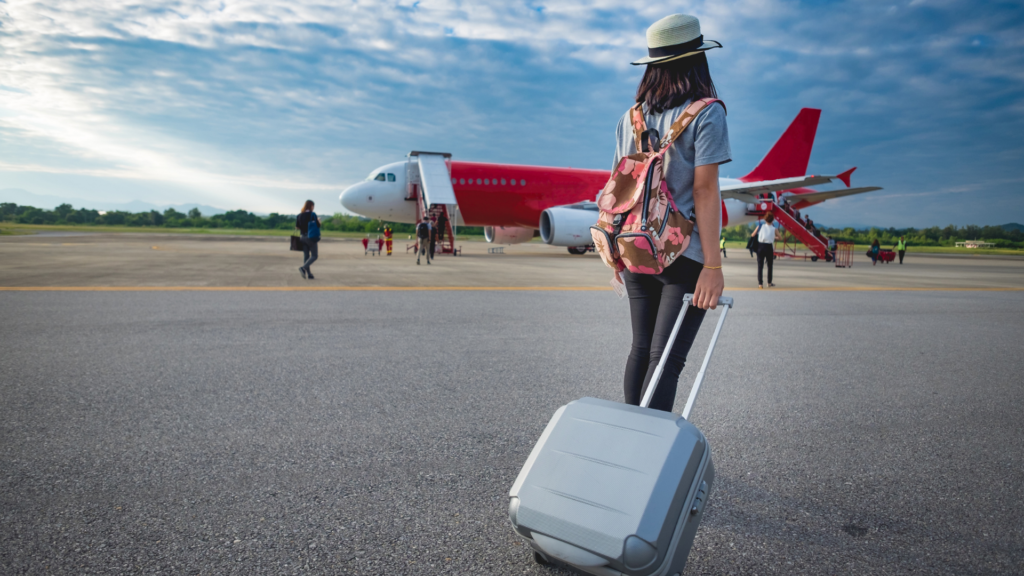
The Takeaway: Traveling With CBD
Hemp CBD is federally legal in the United States, but some states may have other regulations.
When in doubt, always check with your local laws when traveling with your favorite cannabis-based products within the United States.
While the TSA does permit you to travel with CBD within the country, it’s up to you to ensure that you comply with airline regulations, which means you should make sure that you have an appropriate amount on you, that you declare it, and that you’re traveling into another state with lenient laws towards CBD.
That being said, it’s important that you do not travel outside the United States with any cannabis product. Even though it may be legalized on both sides of the border.
If you’re traveling to another country where hemp and CBD are legal, you’re better off purchasing CBD when you arrive rather than risk potential legal issues trying to bring it with you from home.

